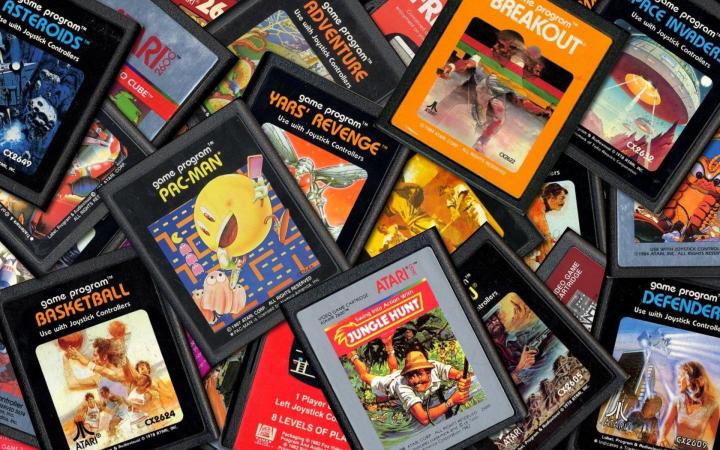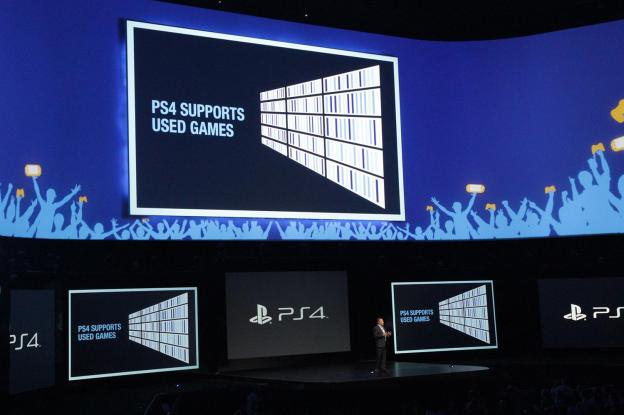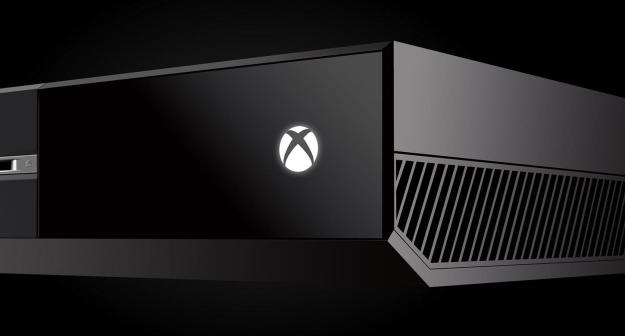
The culture of console gaming isn’t quite ready to die. Or evolve. Or whatever the next phase is for a medium that extends back as far as the early years of Atari and its competitors. Gamers want to keep passing around or selling off their physical media, and they want to do it without the pesky eye of the Internet always watching.

Don’t think that the route to this policy shift was quite as direct as “consumers hate new policies, Microsoft changes tune.” If that were the case, the new arrangement would have been revealed prior to E3, when the wave of discontent first started to crash. If Sony had fallen in line behind Microsoft at the trade show – as many expected it would, particularly in light of 2012’s rumored always-online requirements and used game blockage for the PlayStation 4 – things would have been different. That’s not what happened though.
Maybe the rumors were a bit of corporate subterfuge, a sly attempt on Sony’s part to lure its competitor into embracing an unpopular set of policies. Or maybe the “digital future” Microsoft had mapped out really was the plan all along. It doesn’t matter now. We live in a digital world, but console gamers still want an analog solution.

Can you blame us? We’ve grown up swapping cartridges and discs. It’s one of the advantages that console gaming has over mobile or PC: there’s a culture, a community, that’s built itself around sharing freely. The Xbox One’s now-defunct family sharing feature would have kept that alive to some extent, but people aren’t quite ready to give up the familiar act of handing off a piece of physical media to a friend. I’m certainly not, as much as I might recognize that attitude as antiquated thinking.
So we’re still chained to keeping a disc in our drive when we play, or carrying a plastic case along to a friend’s home to game there. Same as it ever was. The challenge of ushering gaming into the digital future that Microsoft envisioned is ensuring that the heart of what makes console gaming special isn’t lost, and the company’s Xbox One policies threatened that in a couple of ways.
Online checks were the big one. Steam gets along just fine, allowing offline play for up to 30 days before requiring gamers to “check in” using an Internet connection. If you can’t get your machine to an Internet in the space of a month then you’re playing games in the wrong generation.
Microsoft’s 24-hour requirement was needlessly restrictive, and without any demonstrable reason. The need for damage control overruled any possibility of the company extending that window instead of dropping it all together. Still, I’ll always wonder what the industry landscape would have looked like today if Microsoft had come out from moment one with a 30-day window for online checks.

The used games situation wasn’t nearly as dire. If you read through the original license transfer guidelines for Xbox One closely, they weren’t such a huge shift away from what we know. Family sharing was actually a popular feature, and one that I hope to see Microsoft implement in the future. You were still going to be able to sell off old games, or gift them to friends. Sharing discs would have been a no-no for first-party titles, but with both that and license transfers for used games, much of the power was going to be left in the hands of the third-parties.
The Activisions and Electronic Arts of the world want to make money, sure, but the people running these companies aren’t stupid. The status quo says that new games (for the most part) cost $60 and used games cost $55 or less. Retailers like GameStop earn a sizable profit off of secondhand sales – almost double what’s typically paid out to you, the gamer – and none of that goes back to the publishers. Those profits likely would have been cut back, at least for Xbox One re-sales, but the price tags you see on the racks wouldn’t have changed.
The other big problem was really one of messaging. The policies originally laid out for the Xbox One are completely foreign in the console space, and the big challenge that Microsoft faced was bringing the changes across in a positive way. Facts remained unclear after the hardware reveal thanks to conflicting interview responses from company executives. Then there was the big, impersonal policy dump on Xbox.com immediately before E3. Just words on a website, with little explanation. That’s not how you guide a loyal customer through unfamiliar and potentially scary territory.

It would have been so easy to address the changes in a more informative way. Not just clarifying the confusing fine points but also highlighting the benefits that these changes bring to the games. Developers have an enormous amount of potential now in being able to work with Microsoft’s existing network infrastructure as a tool to power their creations. It’s the promise of the cloud that we’ve heard so much talk about.

Microsoft made a smart move here, both in stepping back from its controversial policies and in acting quickly to do so. It was the only play left, given the events of the past few weeks. That said, I sincerely hope that we do one day see a move toward the digital future envisioned for the Xbox One. If it happens, it will come with the benefit of hindsight.
No one’s going to take away your right to play games offline when Internet isn’t a requirement, certainly not in this hardware generation. Similarly, the act of passing a disc to your friend isn’t going anywhere. These are deeply ingrained ideas in the culture of console gaming. The trick then, for both Microsoft and for Sony, will be in figuring out how to evolve those ideas in a more purely digital space.


